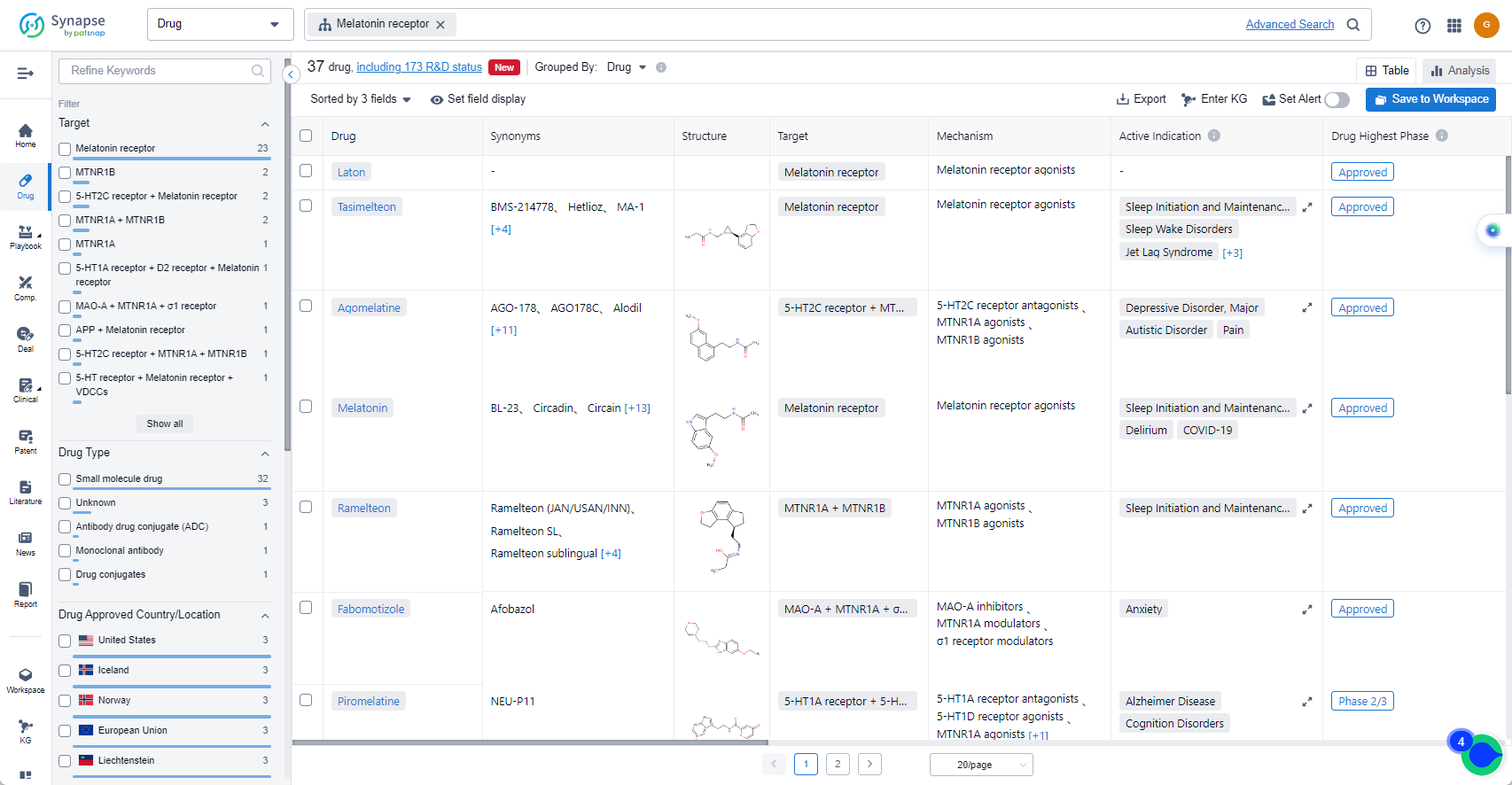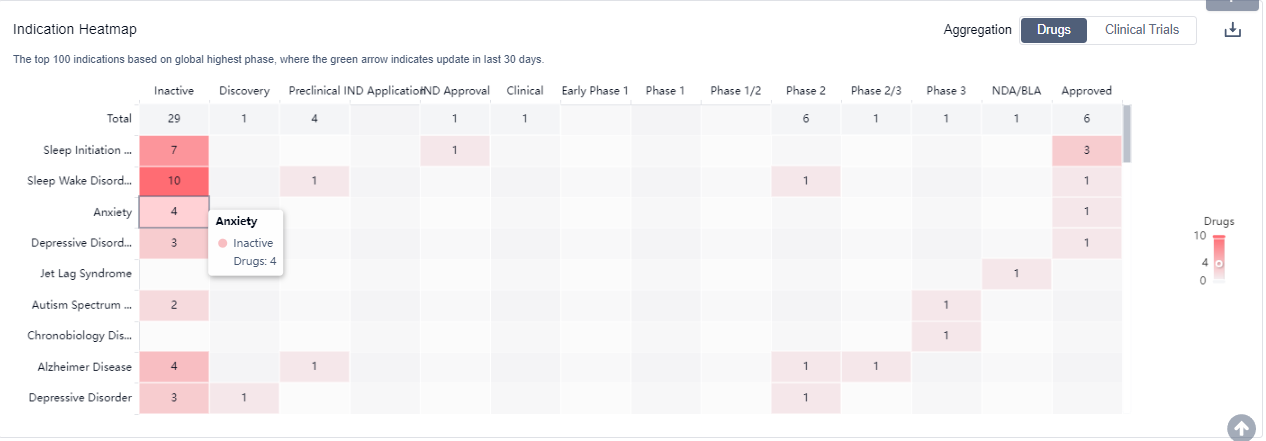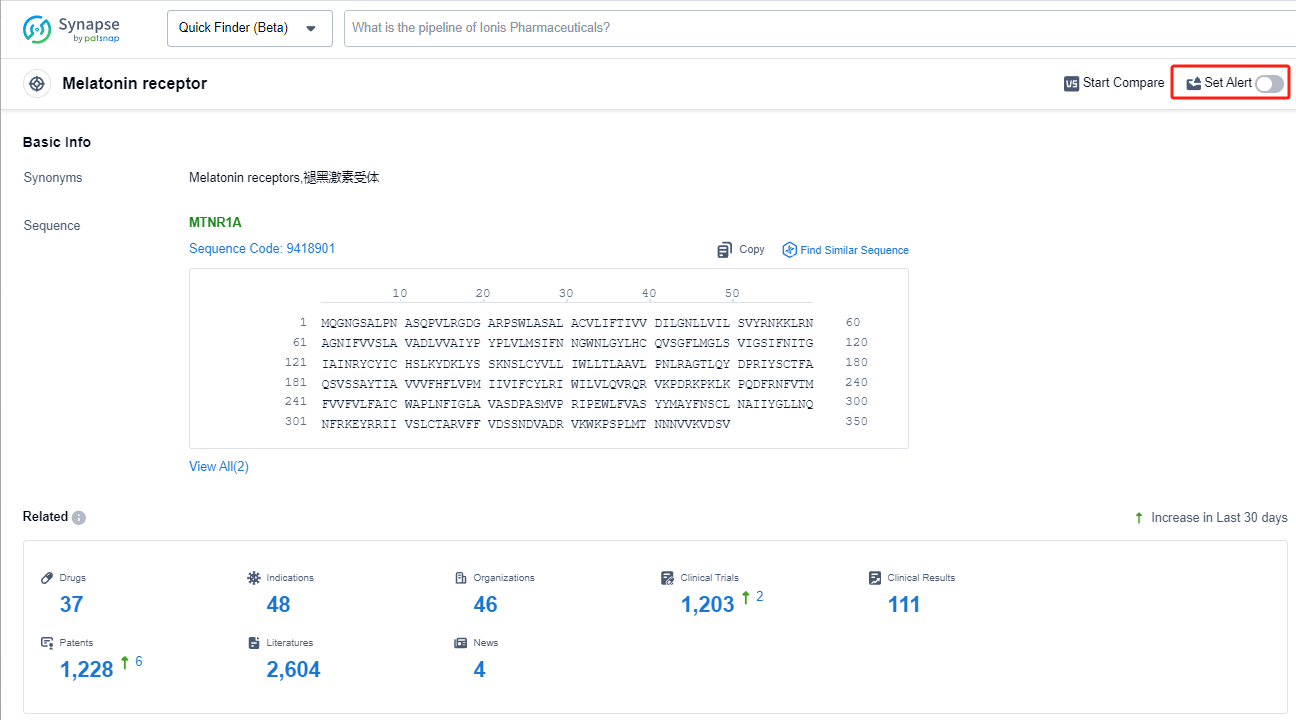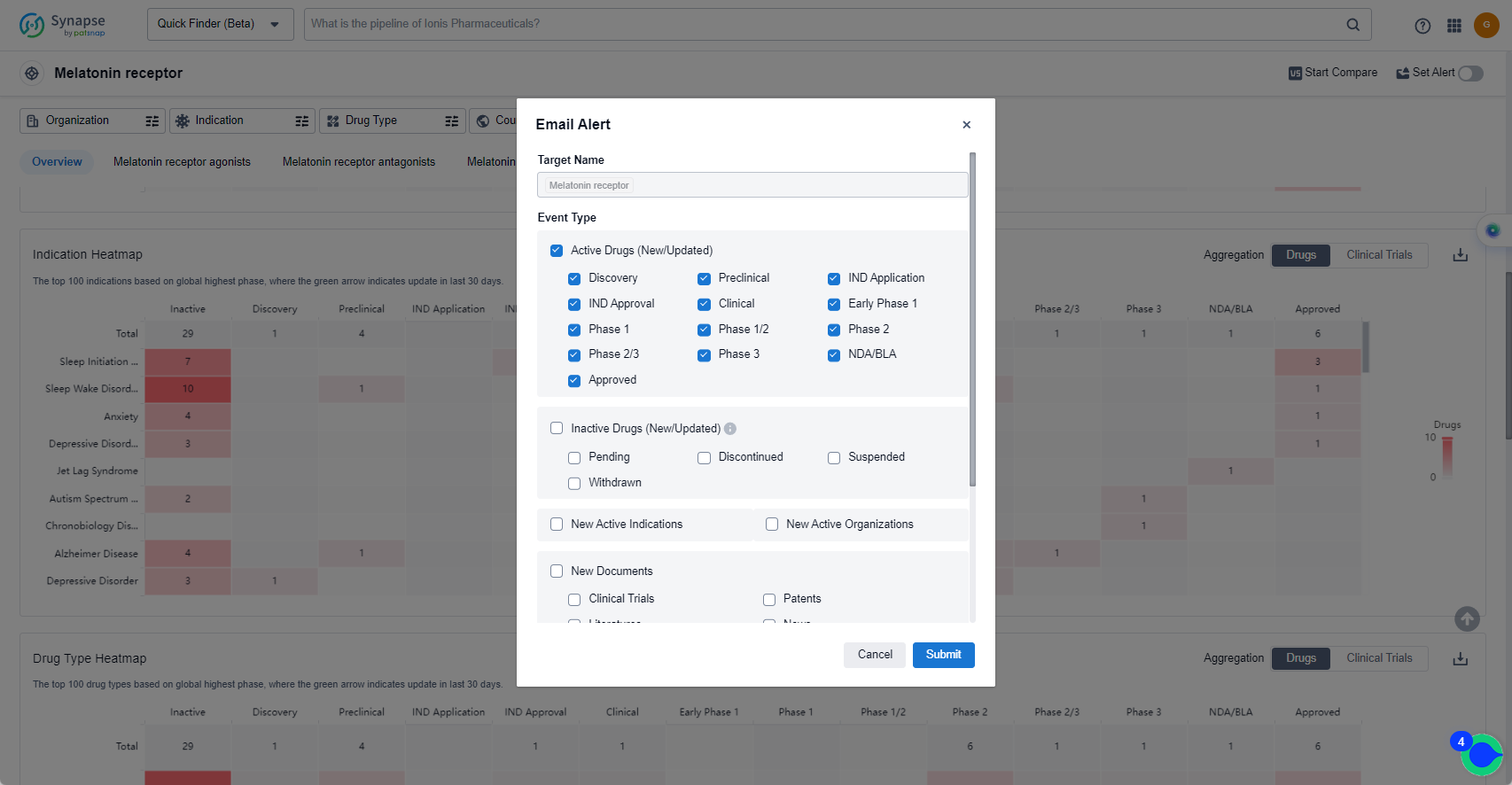Melatonin receptor agonists: What They Are and How to Stay Updated on the Latest Research
Melatonin receptors play a crucial role in regulating the sleep-wake cycle and other physiological processes in the human body. These receptors are primarily found in the brain, particularly in the suprachiasmatic nucleus of the hypothalamus. Melatonin, a hormone secreted by the pineal gland, binds to these receptors, signaling the body to prepare for sleep. Activation of melatonin receptors helps regulate circadian rhythms, promoting sleep onset and quality. Additionally, these receptors are involved in various other functions, including immune system modulation, antioxidant activity, and regulation of reproductive hormones. Understanding the role of melatonin receptors is essential for developing therapies targeting sleep disorders and other related conditions.
Melatonin receptor agonists are analogues of melatonin that bind to and activate the melatonin receptor. They have a number of therapeutic applications including treatment of sleep disorders and depression. The melatonin receptors are G protein-coupled receptors and are expressed in various tissues of the body. There are two subtypes of the receptor in humans, melatonin receptor 1 (MT1) and melatonin receptor 2 (MT2). Melatonin and melatonin receptor agonists, on market or in clinical trials, all bind to and activate both receptor types.
The current competitive landscape of the target Melatonin receptor shows that Les Laboratoires Servier SAS, Takeda Pharmaceutical Co., Ltd., and Vanda Pharmaceuticals, Inc. are the leading companies in terms of R&D progress. The approved drugs under this target are mainly used for indications such as Sleep Initiation and Maintenance Disorders, Sleep Wake Disorders, Anxiety, and Depressive Disorder, Major. Small molecule drugs are the most rapidly progressing drug types, indicating intense competition in the market. China has also made progress in the development of drugs targeting the Melatonin receptor. Overall, the target Melatonin receptor shows potential for future development in various indications and drug types.
How do they work?
Melatonin receptor agonists are a class of drugs that activate melatonin receptors in the body. Melatonin is a hormone naturally produced by the pineal gland in the brain, and it plays a key role in regulating the sleep-wake cycle.
From a biomedical perspective, melatonin receptor agonists are used to treat sleep disorders such as insomnia. By activating the melatonin receptors, these drugs help regulate the sleep-wake cycle and promote sleep. They can be particularly useful for individuals who have difficulty falling asleep or maintaining a regular sleep pattern.
Melatonin receptor agonists work by mimicking the effects of melatonin in the body. They bind to the melatonin receptors, which are located in various regions of the brain involved in sleep regulation. This binding triggers a cascade of events that ultimately promote sleepiness and induce sleep.
Some commonly used melatonin receptor agonists include ramelteon and tasimelteon. These drugs are typically taken orally and are available in tablet form. It's important to note that melatonin receptor agonists should be used under the guidance of a healthcare professional, as they may have potential side effects and interactions with other medications.
List of Melatonin receptor Agonists
The currently marketed Melatonin receptor agonists include:
For more information, please click on the image below.
What are Melatonin receptor agonists used for?
Melatonin receptor agonists are used to treat sleep disorders such as insomnia. For more information, please click on the image below to log in and search.
How to obtain the latest development progress of Melatonin receptor agonists?
In the Synapse database, you can keep abreast of the latest research and development advances of Melatonin receptor agonists anywhere and anytime, daily or weekly, through the "Set Alert" function. Click on the image below to embark on a brand new journey of drug discovery!








